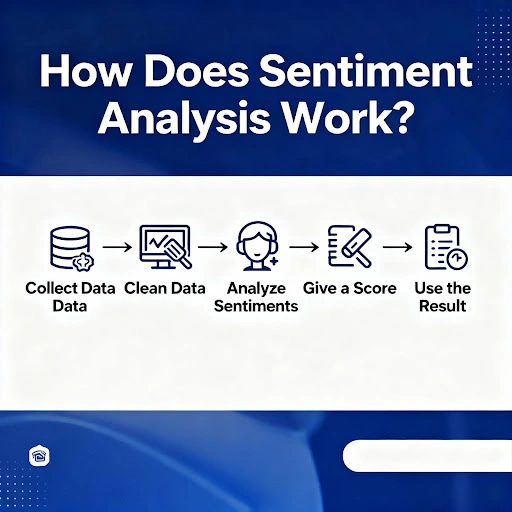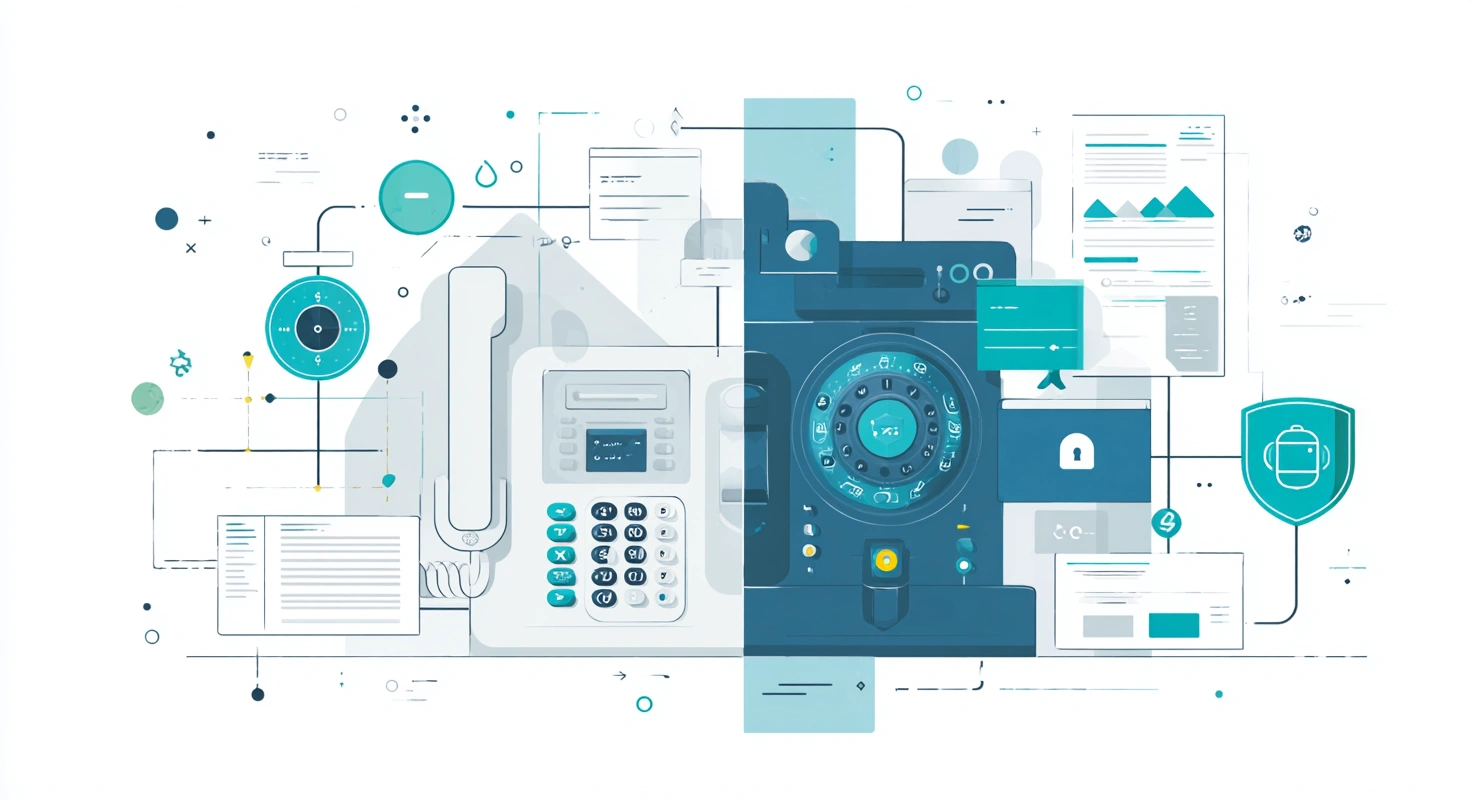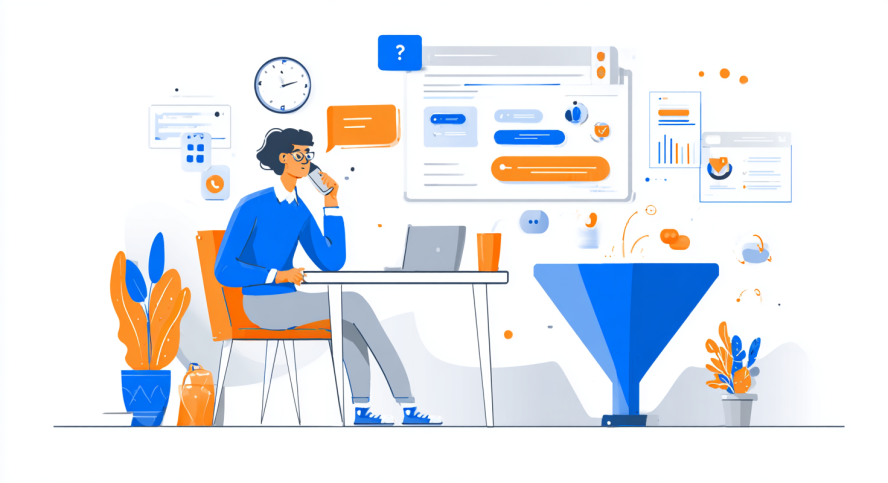From AI-powered assistants to autonomous vehicles, artificial intelligence is no longer futuristic — it's a core part of everyday life. These technologies are transforming how we live, work, and make decisions across every industry.
Whether it's Netflix recommending your next binge, a chatbot resolving your query in seconds, or your phone unlocking with facial recognition — you’ve already experienced AI in action.
What are the most impactful examples of artificial intelligence in 2026? Think of AI doctors detecting illnesses earlier than ever, virtual sales agents boosting conversions, or predictive analytics helping leaders make smarter decisions. These aren’t futuristic dreams — they’re business essentials today.
Step into the AI future — powered by Convin!
Understanding AI: Meaning, Types, and Real-World Examples
Artificial Intelligence refers to the development of computer systems capable of performing tasks that typically require human intelligence, such as understanding natural language, recognizing patterns, and making decisions. It encompasses various subfields, including machine learning, natural language processing, and computer vision.
Let's delve deeper into the concept of artificial intelligence (AI) and provide more examples of artificial intelligence to illustrate its capabilities.
1. Machine Learning
This subset of AI is where computers learn from data and experiences to improve their performance over time.
For instance, recommendation systems used by Netflix or Amazon analyze your viewing or shopping history to suggest content or products that align with your preferences. The more you interact with these systems, the better they predict your choices.
2. Natural Language Processing (NLP)
NLP allows computers to understand, interpret, and generate human language.
A prime example is the chatbot technology used in customer support. Companies like Apple use Siri, a virtual assistant powered by NLP, to answer questions and perform tasks based on voice commands.
3. Computer Vision
This AI field focuses on enabling computers to interpret and make sense of visual information from the world, much like how humans do.
A prime example is self-driving cars, such as Tesla's Autopilot, which uses computer vision to recognize road signs, pedestrians, and obstacles, enabling autonomous driving.
4. Image Recognition
In images and videos, AI can recognize objects, people, and even emotions.
Google Photos, for instance, uses AI to automatically categorize and label your photos based on the objects and people present in them.
5. Speech Recognition
AI-powered speech recognition systems like Amazon Alexa and Google Assistant can transcribe spoken words into text and execute commands. They enable hands-free control of smart devices, providing convenience and accessibility.
6. Healthcare Diagnostics
AI is employed in medical imaging to assist radiologists in identifying anomalies in X-rays, MRIs, and CT scans.
Companies like Aidoc use AI to detect abnormalities in medical images, potentially improving diagnostic accuracy and speed.
7. Autonomous Robots
AI is used to enable robots to perform tasks autonomously.
Robots in manufacturing facilities, like those made by Boston Dynamics, can navigate complex environments and carry out tasks like assembly or inspection without human intervention.
8. Fraud Detection in Banking
AI algorithms analyze real-time transaction data to detect suspicious activities and potentially fraudulent transactions, protecting customers and financial institutions from cyberattacks.
9. Language Translation
AI-powered translation tools, such as Google Translate, are capable of instantly converting text between different languages. By leveraging advanced machine learning algorithms, these tools continuously enhance translation accuracy and better understand context making them especially useful for students, professionals, and anyone using a paper writer online to create or refine multilingual content.
10. Predictive Maintenance
In industrial settings, AI can predict when equipment will likely fail based on sensor data and historical performance, allowing companies to perform maintenance before breakdowns occur and reducing downtime and costs.
These examples demonstrate how AI encompasses a wide range of applications, from language understanding to image analysis, and it has the potential to revolutionize industries by automating tasks, improving decision-making, and providing innovative solutions.
AI is continually evolving, and its capabilities are expanding, making it an exciting field with significant implications for our daily lives and various industries.
Let Convin’s AI tag every key sales moment!
2026’s Top AI Applications: 10 Real Examples You Should Know
In the ever-evolving landscape of technology, Artificial Intelligence (AI) stands at the forefront of innovation, reshaping how we live and work. As we step into the year 2026, the impact of AI has never been more profound, touching virtually every aspect of our lives and industries.
1) Example 1: Consumer Experience - Convin

- Example Case: Convin offers AI-powered solutions. It uses predictive analytics to perform sentiment analysis on consumer interactions and provide automated training and real-time monitoring, allowing companies to deliver a better customer experience and optimize their experience.
- Impact: Companies can effectively achieve targeted customer experience and satisfaction levels, increasing conversion rates and customer retention.
b) Example 2: Automotive - Tesla's Autopilot
- Example Case: Tesla's Autopilot system continues to evolve, utilizing AI-driven sensors and algorithms for semi-autonomous driving. It can navigate traffic, change lanes, and park the car automatically.
- Impact: The benefits of AI-driven autonomous driving technology are enhanced safety, reduced driver fatigue, and increased convenience.
c) Example 3: Healthcare - PathAI
- Example Case: Pathologists often examine tissue samples to diagnose diseases. PathAI's AI system assists pathologists by analyzing medical images and identifying anomalies or potential issues more accurately and quickly.
- Impact: Improved accuracy in diagnosis can lead to early disease detection and more effective treatment plans, potentially saving lives and improving healthcare services.
d) Example 4: Manufacturing - Siemens
- Example Case: Siemens employs AI in manufacturing to predict equipment failures. By analyzing data from sensors and historical maintenance records, AI can forecast when machines are likely to break down and optimize production processes.
- Impact: Reduced downtime, lower maintenance costs, and increased efficiency improve manufacturing productivity.
e) Example 5: Agriculture - John Deere
- Example Case: John Deere uses AI for precision agriculture. AI-driven tractors and equipment can analyze soil conditions, weather patterns, and crop data to optimize planting, irrigation, and harvesting.
- Impact: Enhanced crop yields, reduced resource wastage, and sustainable farming practices increase agricultural productivity.
f) Example 6: Energy - Grid Operators
- Example Case: Grid operators utilize AI to optimize energy distribution. AI algorithms analyze consumption patterns and renewable energy sources to balance the grid efficiently and reduce energy waste.
- Impact: The outcomes of AI in energy management are a reliable energy supply, reduced carbon footprint, and cost savings.
g) Example 7: Customer Service - ChatGPT by OpenAI
- Example Case: ChatGPT and similar AI chatbots provide real-time customer support. They can answer customer queries, troubleshoot issues, and offer solutions 24/7.
Impact: Improved customer satisfaction, reduced response times, and cost-effective customer service are the advantages of AI-powered customer support.
8) Example 8: Security - Darktrace

- Example Case: Darktrace employs AI to detect and respond to cyber threats. It uses machine learning to identify abnormal network behavior and potential security breaches.
- Impact: Enhanced cybersecurity, proactive threat mitigation, and reduced cyberattack risks are outcomes of AI in security.
9) Supply Chain - IBM's Watson Supply Chain
- Example Case: IBM's Watson Supply Chain uses AI to predict and mitigate disruptions in the supply chain. It analyzes data from various sources to optimize logistics and minimize operational disruptions.
- Impact: Efficient supply chain management, reduced costs, and improved customer satisfaction are benefits of AI-powered supply chain solutions.
10) Retail - Amazon Go
- Example Case: Amazon Go stores leverage AI for cashier-less shopping. Computer vision and sensors track items added to a shopper's cart, allowing them to leave the store without going through a traditional checkout process.
- Impact: Enhanced shopping convenience, reduced checkout wait times, and improved overall customer experience are outcomes of AI in retail.
These examples showcase how artificial intelligence is applied across diverse industries, delivering tangible benefits such as improved efficiency, accuracy, and customer satisfaction. AI technology continues to advance, promising even more remarkable transformations in the future.
Explore Convin’s smart transcripts for fast reviews!
This blog is just the start.
Unlock the power of Convin’s AI with a live demo.

Future Examples of Artificial Intelligence to Watch in 2026 and Beyond
The AI industry is poised for remarkable growth in the coming years. Factors such as increased data availability, advanced computing power, and ongoing research are driving this expansion.
AI will continue penetrating various industries, offering innovative solutions and improving operational efficiency. The demand for AI talent will surge, leading to the emergence of new startups and a competitive landscape.
Let's dive deeper into how the AI industry is poised for significant growth in the upcoming years, focusing on AI technology examples and cases.
1. Increased Data Availability
Example: Social Media Analytics - As social media platforms like Facebook and Instagram continue to gather massive amounts of data, AI algorithms are being employed to analyze user behavior, sentiment, and trends. Companies can use this information to tailor marketing campaigns, improve user engagement, and gain valuable insights into consumer preferences.
2. Advanced Computing Power
Example: Quantum Computing - Quantum computers, such as those being developed by companies like IBM and Google, have the potential to process complex AI algorithms much faster than traditional computers. This could lead to breakthroughs in AI research, enabling the development of more robust models for various applications.
3. Ongoing Research
Example: Healthcare and Drug Discovery - AI is being used to accelerate drug discovery processes by simulating and analyzing the interactions between various molecules. Companies like Insilico Medicine leverage AI to identify potential drug candidates, significantly reducing the time and costs of bringing new medicines to market.
4. Penetration Across Industries
Example: Agriculture - AI-driven precision agriculture is gaining momentum. Companies like Blue River Technology (now part of John Deere) utilize computer vision and machine learning to identify and manage individual plants and apply pesticides or fertilizers precisely where needed. This reduces environmental impact and increases crop yields.
5. Innovative Solutions
Example: Autonomous Delivery - Companies like Nuro are pioneering autonomous delivery vehicles that use AI for navigation and safety. These vehicles are reshaping last-mile delivery services, making them more efficient and cost-effective, with potential applications in the food and retail industries.
6. Operational Efficiency
Example: Manufacturing - AI-powered robotics and automation are trans-customer trust processes. For instance, Fanuc's AI-guided robots can learn from human demonstration and adapt to new tasks quickly, increasing production efficiency and flexibility.
7. Demand for AI Talent
Example: Online Learning Platforms - Coursera and edX have seen a surge in demand for AI-related courses and certifications. As more individuals seek AI skills, the educational technology industry is growing, catering to this demand for AI talent.
8. Emergence of Startups
Example: AI in Finance - Startups like Robinhood and Wealthfront use AI algorithms for robo-advisory services. These platforms offer automated investment advice, portfolio management, trading, and increasingly rely on ai for investment research to analyze market trends and user behavior, challenging traditional financial institutions.
9. Competitive Landscape
Example: AI in Retail - Retail giants like Amazon continuously invest in AI to enhance their recommendation engines and optimize supply chain logistics. This pushes competitors to innovate and adopt AI-driven strategies to remain competitive.
The AI industry's growth is driven by data availability, advanced computing power, ongoing research, and increasing applications across various sectors.
As more industries recognize the potential of AI to solve complex problems, improve efficiency, and drive innovation, the demand for AI talent will surge, giving rise to new startups and a highly competitive landscape.
Get deal-winning AI call summaries in seconds!
AI in Action: How Companies Turn AI Examples Into Results
In the rapidly evolving landscape of technology, Artificial Intelligence (AI) stands as a transformative force that holds immense potential for companies across industries. To harness the full spectrum of AI's capabilities and remain competitive in the upcoming years, businesses must not merely adapt; they must strategize and innovate.
1. Invest in AI Talent and Expertise
- Example: Google's DeepMind, known for its AI breakthroughs, has assembled a team of world-class AI researchers and engineers. They hire top talent to work on cutting-edge AI projects like AlphaGo, an AI program that beat the world champion in the game of Go.
- Explanation: Building a team of AI experts allows your company to stay at the forefront of AI innovation. These experts can develop custom AI solutions tailored to your specific needs and help you navigate the rapidly evolving AI landscape.
2. Embrace AI as a Strategic Asset
- Example: FedEx utilizes AI to optimize its package delivery routes. By analyzing historical data, weather conditions, and traffic patterns in real time, FedEx's AI-powered algorithms adjust delivery routes to minimize delays.
- Explanation: Integrating AI into your core operations can enhance efficiency and decision-making. AI can be applied across departments, from supply chain management to customer service, making it a strategic asset that improves overall performance.
3. Leverage AI-Powered Tools and Platforms
- Example: Airbnb employs AI-driven pricing algorithms to adjust rental prices based on demand, seasonality, and other factors. This dynamic pricing strategy maximizes revenue for hosts and the platform.
- Explanation: AI tools and platforms like Convini.ai in marketing automation and Marlee for AI-powered talent insights can help companies make data-driven decisions. Such tools automate tasks, personalize customer interactions, and optimize campaigns, resulting in higher ROI and improved customer satisfaction.
4. Prioritize Data Security and Ethics
- Example: Facebook faced scrutiny over its handling of user data, prompting the need for ethical AI practices. Companies must ensure that AI systems protect user privacy and don't enable harmful uses of AI, such as deepfake creation or biased algorithms.
- Explanation: Ethical AI practices involve transparency, fairness, and responsible data handling. Companies can build customer trust and avoid reputational damage by adhering to these principles.
5. Continuously Adapt
- Example: Netflix continually refines its recommendation algorithms to enhance user experience. They regularly collect user feedback and adapt their AI models to deliver more accurate movie and TV show suggestions.
- Explanation: The AI field evolves rapidly. Companies must stay up-to-date with the latest AI advancements and trends. Flexibility and adaptability ensure your AI solutions remain relevant and competitive in the marketplace.
Incorporating these strategies, illustrated through real-world examples, can position companies to reap the benefits of AI in the years ahead. AI is not a one-time investment but a transformative journey that requires ongoing commitment and adaptation to stay ahead in an increasingly AI-driven world.
What’s New in AI for 2026?
AI in 2026 is not just about isolated tools — it’s about integrated, agentic systems and real‑world applications that work autonomously with human oversight:
- AI data agents that continuously monitor business data, detect significant changes, and automatically deliver insights or alerts based on predefined conditions.
- AI for physical systems & robotics, moving beyond software to real‑world action.
- AI in mobile computing — greater integration into billions of devices globally.
- AI governance & ethical standards shaping adoption across industries.
Let’s Sum It All Up!
AI’s influence in 2026 is deeper, more integrated, and increasingly agent-driven. Businesses that strategically embrace AI — with a focus on automation, personalization, and ethical deployment — are best positioned to lead in this hyper-evolving digital landscape.
From smart assistants and AI agents to predictive insights and autonomous systems, AI is no longer a futuristic concept — it's the backbone of real-world innovation. As AI continues to evolve, its role in enhancing operational efficiency, customer engagement, and strategic decision-making will only grow.
The future of AI isn’t just about technology — it’s about trust, transparency, and responsible scaling. Brands that align their AI initiatives with user needs and ethical standards will earn long-term loyalty and sustainable growth.
At Convin, we believe in AI that empowers people and drives smarter conversations. The AI revolution is here — and it’s just getting started.
Are you curious? Jump on a call with us and take the first step with Convin into harnessing the power and future of artificial intelligence.
Frequently Asked Questions
1. What are examples of artificial intelligence today?
AI includes virtual assistants, recommendation systems, autonomous vehicles, predictive analytics, and intelligent automation across industries.
2. Are AI robots a real part of daily life in 2026?
Yes — autonomous and humanoid robots are increasingly used in homes, factories, and service environments.
3. Can small businesses use AI tools in 2026?
Yes. AI tools are now more accessible and affordable for SMBs, enabling marketing automation, CRM support, content generation, and customer analytics at scale.
4. What are the top 10 examples of artificial intelligence in 2026?
The top AI examples in 2026 include virtual assistants, autonomous vehicles, predictive maintenance, healthcare diagnostics, recommendation engines, chatbots, NLP tools, AI in fraud detection, smart robotics, and energy grid optimization.
5. What industries are using AI the most in 2026?
In 2026, AI is heavily used in healthcare, finance, logistics, retail, manufacturing, and customer service. These sectors use AI for automation, decision-making, and efficiency.
6. Are AI chatbots better than humans for customer support in 2026?
In many cases, yes. AI chatbots offer instant 24/7 support, consistent answers, and multilingual capabilities — but complex queries still benefit from human oversight.


%20BLOG10%20examples%20of%20artificial%20intelligence%20in%202024.webp)







.avif)